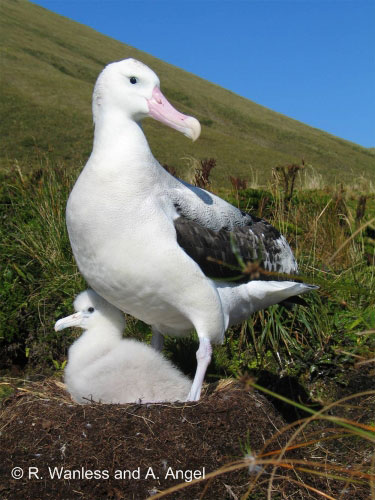Holly Jones (Department of Biological Sciences, Northern Illinois University, DeKalb, USA) and a suite of colleagues have reviewed the conservation benefits from invasive mammal eradications on islands in the Proceedings of the National Academy of Sciences of the United States of America.
The paper’s abstract follows:
“More than US$21 billion is spent annually on biodiversity conservation. Despite their importance for preventing or slowing extinctions and preserving biodiversity, conservation interventions are rarely assessed systematically for their global impact. Islands house a disproportionately higher amount of biodiversity compared with mainlands, much of which is highly threatened with extinction. Indeed, island species make up nearly two-thirds of recent extinctions. Islands therefore are critical targets of conservation. We used an extensive literature and database review paired with expert interviews to estimate the global benefits of an increasingly used conservation action to stem biodiversity loss: eradication of invasive mammals on islands. We found 236 native terrestrial insular faunal species (596 populations) that benefitted through positive demographic and/or distributional responses from 251 eradications of invasive mammals on 181 islands. Seven native species (eight populations) were negatively impacted by invasive mammal eradication. Four threatened species had their International Union for the Conservation of Nature (IUCN) Red List extinction-risk categories reduced as a direct result of invasive mammal eradication, and no species moved to a higher extinction-risk category. We predict that 107 highly threatened birds, mammals, and reptiles on the IUCN Red List—6% of all these highly threatened species—likely have benefitted from invasive mammal eradications on islands. Because monitoring of eradication outcomes is sporadic and limited, the impacts of global eradications are likely greater than we report here. Our results highlight the importance of invasive mammal eradication on islands for protecting the world's most imperiled fauna.”

Gough Island's Tristan Albatrosses will benefit by the planned eradication of invasive House Mice
Photograph by Andrea Angel and Ross Wanless
Reference:
Jones, H.P. et al. 2016. Invasive mammal eradication on islands results in substantial conservation gains. Proceedings of the National Academy of Sciences of the United States of America. doi: 10.1073/pnas.1521179113.
John Cooper, ACAP Information Officer, 05 April 2016

 English
English  Français
Français  Español
Español